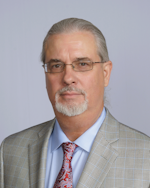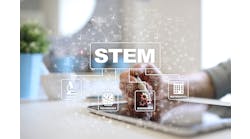Latest from WEB EXCLUSIVES
Opening Up the Network
STEM-Centric Metros
Reflections From the Field —
When I am not a telecom technician, sitting on the front porch during a thunderstorm is exhilarating. Nature shows her might and beauty in one big production.
Sure, there is some danger of being hit by lighting. However, if it happens while you’re surrounded by the ground sources around a house, it is probably your time anyway.
When working in the outside plant, I must remember to close the terminals completely when finished. My laziness on a beautiful day could cause another field technician to lose his toe to frostbite while digging out a snow bank 6 months later. When we consider how our actions can impact the rest of the group, it gets easier for everybody.
For the last 11 months as a Network Technician, thunderstorms had me checking the radar and the power company outage sites. Meanwhile, my switches were set to ding my computer with any alarms.
Let’s face it. Loop Electronics do not like gigawatt power surges. Even when every bonding and grounding spec is followed to the letter, major damage can still occur if the lightning hits just right.
My last night as a technician with a territory was last night. Thunderstorms were prevalent through the area, and I expected my phone to ring. One last reminder of the daunting responsibility that technicians face I thought. Surprisingly, the phone did not ring. That allowed me time to reflect on my career as a technician, and what I’ve learned may help you in the future.
The People
The best part of being a technician is working with intelligent and caring people. In this rural environment, we don’t work for the Company — we work for each other and the customers. The Company just pays the bills.
Lighting striking the power grid.
This is not being unfair to the Company. Rural environment operations groups are working with antiquated network elements; many of my alarm interfaces are still dialup only. Thankfully, this is changing. Slowly, new equipment is being introduced. But in the current situation, we must interface with 1950s to 2018 technology. The company can’t write specs and expectations based on that broad spectrum, so we must depend on each other to get through each day.
It is a simple fact: without each other, the local operations groups are all sunk. The managers are spread way too thin to help much anymore. When your boss has a 5-hour drive to see you, he or she doesn’t very often. Harsh winter conditions with deadly temperatures makes working together with the other technicians a safety necessity; the added benefit is that working together is easier on everybody.
Partnerships
The people in my area don’t just pull their weight — they will drop everything to help you.
Trying to reach an outage during a snow storm.
A time ago, I had the callout duty while there was a bad snow storm going on. We lost power to an office that hosts a lot of transport equipment. I had to get a portable generator there, and the generator was stored 35 miles out of the direct route. It took the power company 4 hours to travel 10 miles during the storm. I had the joy of facing 83 miles.
I called my friend who has the next territory to the Northwest at 5:30 A.M. to ask if everything was fueled. It was.
During my drive in the storm, I could barely see. My friend stayed awake, checked the weather, and checked the status on the local power as I drove. At one point, I could no longer see the road at all; with deep ditches along both sides of the road, I had to pull over.
After pulling over, he called and told me the power was back on. He also checked my alarms; everything was clean and green. Now, all I had to do was make it back home.
It took me 2 hours to travel 38 miles and 3 hours to get home again. My friend kept calling in and checking on me. He never charged the company a dime for his work. He did this because that is what we do for each other.
There are little things, too. When working in the outside plant, I must remember to close the terminals completely when finished. My laziness on a beautiful day could cause another field technician to lose his toe to frostbite while digging out a snow bank 6 months later. When we consider how our actions can impact the rest of the group, it gets easier for everybody.
Not That Rare
Whether it is in Houston in August or Northern Alaska in January, physical and emotional suffering is part of the job in local operations. Shared suffering builds bonds between people that are strong.
We often spend more waking hours with our coworkers than we do our family. Crews all over the world treat each other like the group I shared in my last technician role. Those people know what they are doing, care about what they are doing, and care about each other. That creates a powerful force. When you are part of that, you feel part of something special.
Last Night
Now, once again, I can enjoy a spring thunderstorm.
I will not miss that heavy cell phone as my constant companion. I will not miss that annoying ring tone I used as my alarm in the middle of the night. I will NOT miss freezing my butt off. I will not miss carrying 5 pounds of keys with me everywhere.
But I will miss the joy of troubleshooting. I will miss the pride of getting subscribers back in service. I will miss being part of a good and close team. I will miss knowing that my back is always covered.
Column Update
Recently, a reader asked me "Why are you covering a copper-related problem in your ISE EXPO seminar after talking about 100GE in your last column?" I understand how this might be misunderstood to be a mismatch. Ultra-high rate transport and copper fed remote sites have completely different problems. Still, our readers must fix and install both technologies and sometimes on the same day.
The Network Maintenance Corner and our seminars will continue to explore broad ranges of technologies and problems. The more feedback we get from you, the more subject matter diversity we will achieve. My company, VMS, will be at the ISE EXPO 2018 in Denver. Stop by booth #1038 with any questions or column ideas. Please visit www.iseexpo.com to register to attend.

Vernon May
Vernon May is the Chief Technologist and Founder of Vernon May Solutions. He is an expert in OSP and ISP Operations, and focuses on new technology introduction, from marketing and sales to design enhancement to training to product approval. Along with writing a column for ISE magazine, he also hosts seminars available throughout the country.
For more information, call Vernon at 1.319.238.0285, email: [email protected], visit https://www.vmaysolutions.com/, and follow him on Twitter @Vernonmay13.






